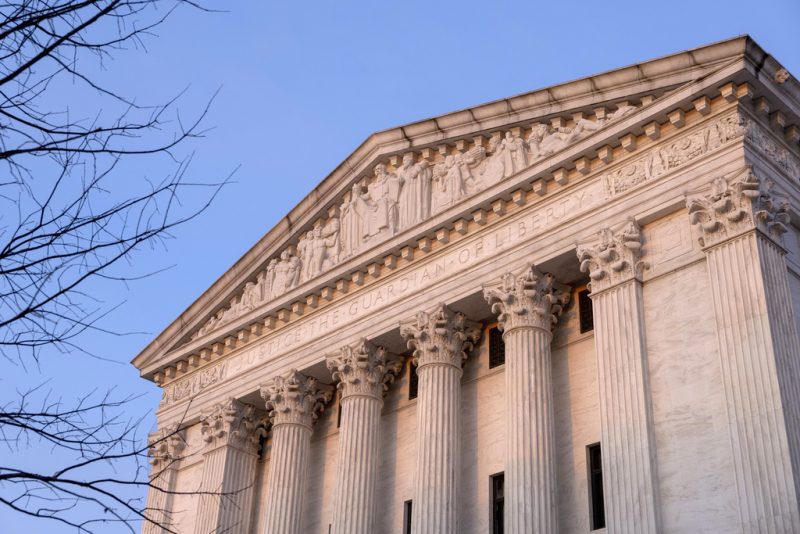In a landmark case that has the potential to reshape the way municipalities address homelessness, the Supreme Court has heard arguments in a case challenging the city of Grants Pass, Oregon’s, ordinance prohibiting camping in public spaces.

“Cruel and Unusual”?
Hundreds of demonstrators gathered outside the courthouse, chanting slogans denouncing the inhumane treatment of homeless individuals. Jesse Rabinowitz, from the National Homelessness Law Center, condemned the ordinance as unnecessarily harsh:
“Can you imagine anything more cruel and unusual than throwing somebody in jail for using a blanket in the middle of the freezing winter?”
Beyond the Bench
The case has also caught the attention of U.S. Representative Kevin Kiley from Rocklin, who has witnessed the impact of homelessness in his state firsthand:
“Kids can’t walk to school without dodging needles or waste. Citizens can’t go to the park without confronting open drug use.”
Kiley believes a ruling in favor of Grants Pass would empower other cities to take more effective measures to address homelessness.
Legal Wrangling
Inside the courtroom, Justice Elena Kagan raised objections to Grants Pass’s laws, suggesting they overreach by criminalizing homelessness. However, Chief Justice John Roberts questioned whether homelessness itself should be considered a constitutionally protected status.
A Precedent-Setting Ruling
A lower court had previously ruled in favor of the homeless population, deeming it cruel and unusual punishment to target individuals who have nowhere else to go. Grants Pass Attorney Theane Evangelis implored the Supreme Court to overturn that decision, arguing it has “fueled the spread of encampments while harming those it purports to protect.”
The court’s decision, which is expected later this year, has the potential to have a profound impact on the way cities across the nation address the issue of homelessness.
Key Questions at Hand
Data sourced from: ktla.com























